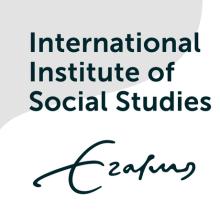Resource information
Large-scale land acquisition are not new in the Mekong region but have been encouraged and have gathered momentum since the end of the 90s, particularly Cambodia, Laos, and Myanmar. These acquisitions are realized by national and foreign companies from the region, particularly China, Vietnam, and Thailand in a movement strongly associated with economic globalization and neo-liberal policies which promote free flow of capital at the regional and global level and the adaptation of national spaces to the requirement of liberal and global markets (Peemans, 2013). It is striking to see how Cambodia, Laos and Myanmar, with different political regimes and histories, have shifted radically from a model based on land ownership by the State' with a relatively egalitarian land access by family farmers, to a model encouraging long term land leases that favor the emergence of large capitalist private and corporate owners and the abandon of land national sovereignty principles, sensu Borras and Franco (2012). In fact, the present policies favoring large scale concessions (largely at the expense of small holders and of indigenous peoples / ethnic minorities) can be considered as a "counter agrarian reform", the opposite of land reform policies promoted by both socialist countries and by the USA (Alliance for Peace) in the 60s, although with very different modalities and objectives. Although different factors can explain these policy shifts, in particular widespread corruption and patrimonial practices of the political elites, on the one hand and geo-strategy and political influence of regional powers on the other hand, this paper argues that this model of agricultural modernization through FDI and large scale land acquisition is being promoted through the convergence of actors such as the international agro-industrial complex, International Financial institutions (IFI), some bi-lateral donor or government state owned funds/enterprises. The claims of this model, largely shared by the region's middle class and intellectuals, can be outlined as follows: 1) an inflow of FDI – Foreign Direct Investment -is essential for economic development; 2) large-scale agriculture is more efficient than family farming in terms of economic development; 3) privatizing land facilitates investments and therefore increases land and labor productivity; 4) subsistence peasant and ethnic minority farmers are structurally incapable of agricultural development progress and would be better off if they become wage workers; and 5) the growing 'modern economy' will naturally absorb the work force coming out of agriculture and that of general population growth. All these assertions can be challenged to various degrees, both from a theoretical and empirical point of view. Available evidence indicates that economic benefits have not accrued at the level expected – either to family farmers or to the state treasuries – as cash benefits have been 'privatized' by domestic power elites hidden behind non-transparent one-party states, but also because many investments have produced disappointing results. The increase in number of landless farmers and rising number of land conflicts poses a serious challenge to the legitimacy and stability of the concerned states. However, although numerous case studies can be found, the aggregated information available on the impacts of large-scale agricultural investments is scarce. This paper will conclude by proposing as a strategy aiming to challenge the dominant 'paradigm' of agricultural modernization based on large scale agriculture and FDI, by research-based initiatives and policy dialogue at the regional level, as a way to improve land policies in favor of family farmers and ethnic minorities.






